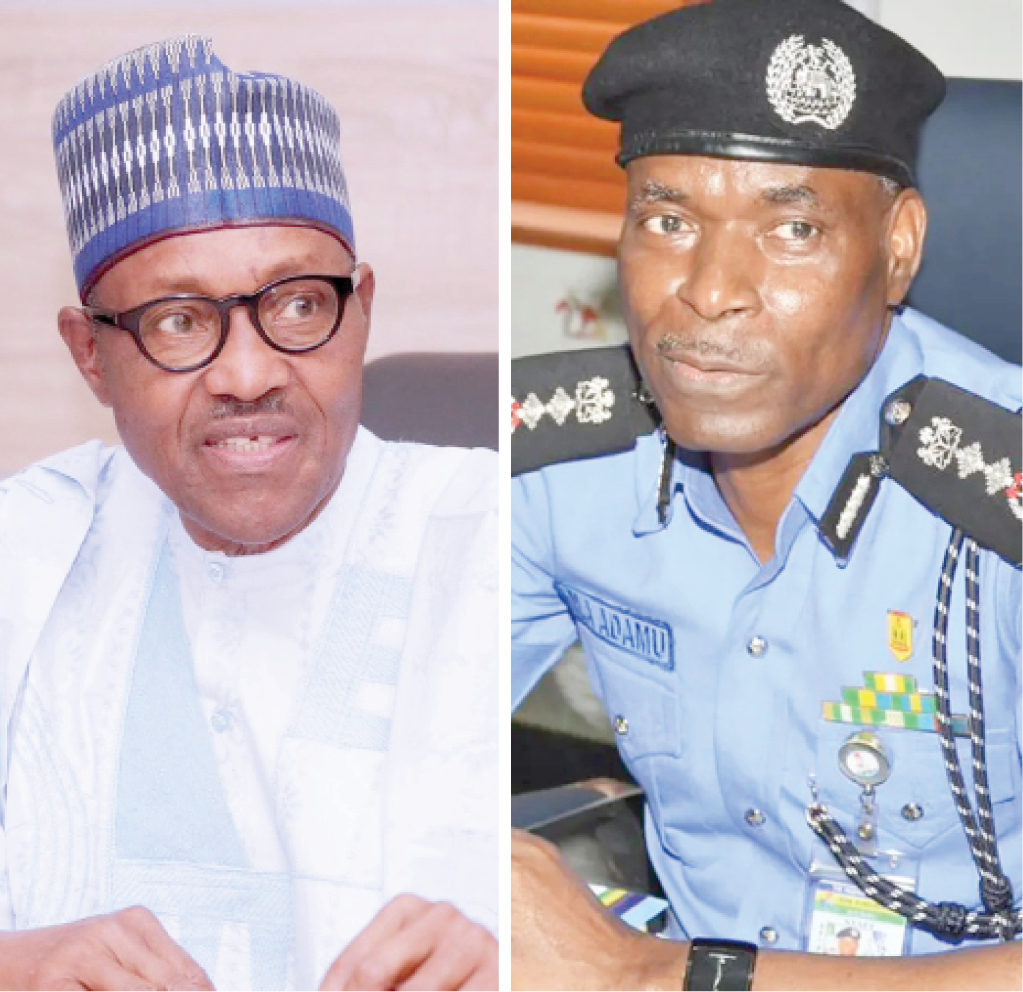On September 16, 2020, President Muhammadu Buhari assented to the new Nigeria Police Bill, 2020. It repeals the Police Act Cap P19 Laws of the Federation, 2004 and provides for a more effective and well organised police force, driven by the principles of transparency and accountability in its operations and management of its resources. It also enables and establishes an appropriate funding framework for the police, in line with what is obtainable in other Federal Government’s key institutions, to ensure appropriate funding for all police formations.
The Act further enhances professionalism in the Police Force, through increased training opportunities for officers. It also creates enduring cooperation and partnership between the police and communities in maintaining peace and combating crimes nationwide.
The Act, which has 142 sections, explains the general duties of the police to include, among others, protection of the rights and freedom of every person in Nigeria, the African Charter on Human and People’s Rights, and any other law; provision of humanitarian assistance for citizens, facilitation of movement on highways, etc, without subjecting citizens to extortion, and adoption of community partnership in the performance of their duties.
Clause 7 of the Act sets out the appointment procedure and qualification requirements for the person to be appointed as inspector-general of police. The new law states that the person to be appointed into this office shall be a senior police officer not below the rank of an assistant inspector-general, with not less than a first degree or its equivalent, in addition to professional and management experiences. It states that such a person so appointed shall hold office for four years and shall only be removed from office for gross misconduct, violation of the constitution or demonstrated incapacity to effectively discharge the duties of the office.
The law also empowers the president to remove the inspector-general on the advice of the Police Council.
According to the Act, the inspector-general shall give a quarterly report to the Police Service Commission, itemising the number and identity of persons who were detained in all police formations across Nigeria, charged and prosecuted in the courts in Nigeria and the outcome of their cases, killed or wounded during police operations across Nigeria, and those who died in police custody.
Powers of police officers
Section 38(1) of the Act explains the powers of police officers to arrest suspects without an order of a court and without a warrant. It states that a police officer may arrest a suspect whom he suspects, on a reasonable ground, of having committed an offence in Nigeria or any other country, unless the law creating the offence provides that the suspect cannot be arrested without a warrant; who commits an offence in his presence; who obstructs a police officer executing his duty; or who has escaped or attempts to escape from lawful custody; in whose possession anything is found, which may reasonably be suspected to be a stolen property, or who may reasonably be suspected of having committed an offence with reference to the thing; whom he suspects, on reasonable grounds, of being a deserter from any of the armed forces of Nigeria; whom he suspects, on reasonable grounds, of having been involved in an act committed at a place outside Nigeria, which, if committed in Nigeria, would have been punished as an offence; to prevent the suspect in question from causing physical injury to himself or any other person, suffering from physical injury, causing loss of or damage to property, committing an offence against public decency, causing an unlawful obstruction of the highway; among other things. It, however, states that no person shall be arrested without warrant, except as provided in subsection (1) of this section.
It states that a police officer can arrest a suspect who commits an offence in his presence without a warrant even though the Act creating the offence provides that the suspect cannot be arrested without a warrant.
Sections 35, 36 and 37 detail how to treat a suspect upon arrest. Section 35 states that a suspect shall be immediately informed of the reason for his arrest by the police officer.
It also mandates the police officer to inform the suspect of his right to remain silent or avoid answering any question until after consultation with a legal practitioner, consult a lawyer before making, endorsing or writing any statement or answering any question put to him after arrest. The suspect is also entitled to free legal representation by the Legal Aid Council of Nigeria.
Section 36 prohibits a police officer from arresting any person in place of a suspect.
Section 37 states that a suspect shall be accorded humane treatment, having right to the dignity of his person; and not be subjected to any form of torture, cruel, inhuman or degrading treatment.
The Act, in section 49 (1), empowers a police officer to detain and search any person or vehicle where reasonable grounds for suspicion exist that the person being suspected has in his possession or conveying anything believed to be stolen, unlawfully obtained, or unlawful article. It, however, mandates the officer, before the search, to disclose his name, station, search object and grounds or authorisation for undertaking the search, according to section 50.
The officer shall be in uniform or wear a visible or valid police identity card to exercise the power to stop and search.
Efforts shall be made to minimise embarrassment. Force can only be used when the person being searched is unwilling to co-operate, or resists.
Section 54 of the Act states that a person’s attributes, including his colour, age, hairstyle or manner of dressing shall not be grounds for reasonable suspicion. Others are previous conviction for possession of an unlawful article, or stereotyped images of certain persons or groups suspected to be committing offences.
Powers to prosecute
Section 66 of the Act, which provides prosecutorial powers to ‘non-qualified legal practitioners,’ has been generating reactions within the legal community. Subsection 1 of this section states that subject to the provisions of sections 174 and 211 of the Constitution and section 106 of the Administration of Criminal Justice Act, which relates to the powers of the Attorney-General of the Federation and of a state to institute, takeover and continue or discontinue criminal proceedings against any person before any court of law in Nigeria, a police officer who is a legal practitioner, may prosecute in person before any court, whether or not the information or complaint is laid in his name.
Subsection 2 states that a police officer, subject to the provisions of the relevant criminal procedure laws in force at the federal or state level, may prosecute before the courts, those offences which non-qualified legal practitioners can prosecute.
Some lawyers argued that there is no offence that only ‘non-qualifier legal practitioners’ can prosecute, citing section 8(1) of the Legal Practitioners Act, which specifies that only “a legal practitioner shall have the right of audience in all courts of law sitting in Nigeria.’’
Community policing
For effective and efficient policing of communities across the country, the Act states that the commissioner of police of a state shall establish a committee consisting of representatives of the Police Force and the local community in the state. It lists the duties of community officers to include assisting the police in crime detection and prevention; conflict resolution; criminal intelligence gathering and dissemination to local police commanders; maintenance of law and order; dealing with minor offences and social vices; traffic management and school safety duties, among others. This section provides for the judicious use of all funds accruing to the Police Force.
According to Section 28, the Police Force shall, not later than September 30 of each year, submit to the National Assembly, through the minister, estimates of its income and expenditure for the next succeeding financial year.
It also allows the submission of supplementary or adjusted statements of estimated income and expenditure.
Section 30 mandates the Police Force to, not later than June 30th of each financial year, submit a report to the minister, detailing all activities of the preceding financial year. This report shall include a detailed information with regards to the activities and expenditures of the Police Force, utilised in carrying out of its policing plan; a copy of the audited accounts of the Police Force for that year, together with the auditor-general’s report on the accounts.

 Join Daily Trust WhatsApp Community For Quick Access To News and Happenings Around You.
Join Daily Trust WhatsApp Community For Quick Access To News and Happenings Around You.


